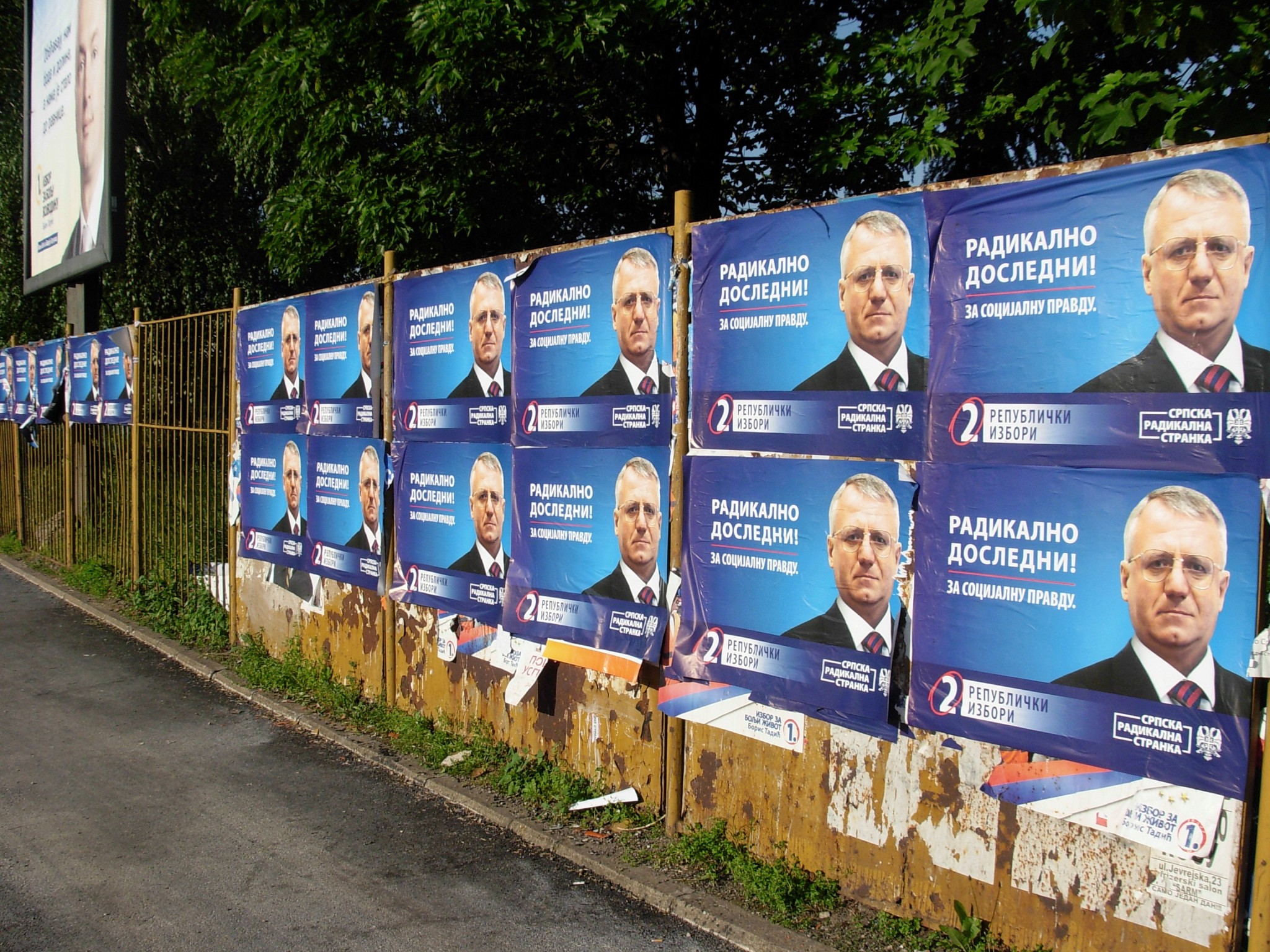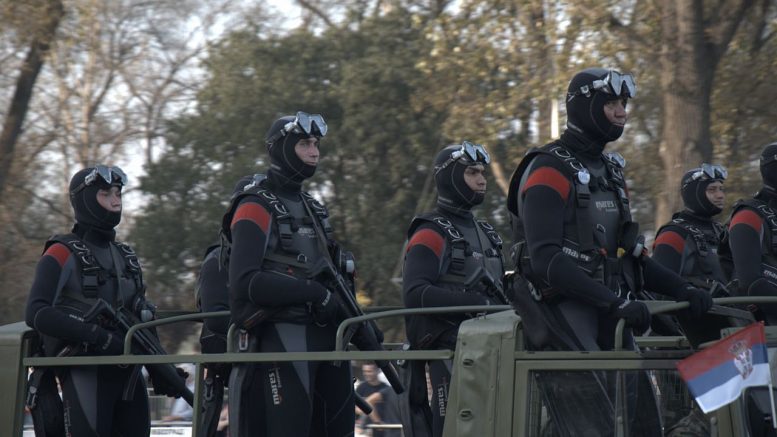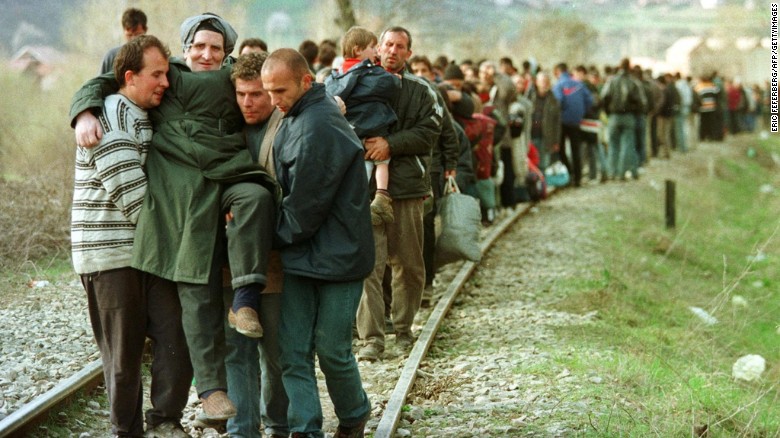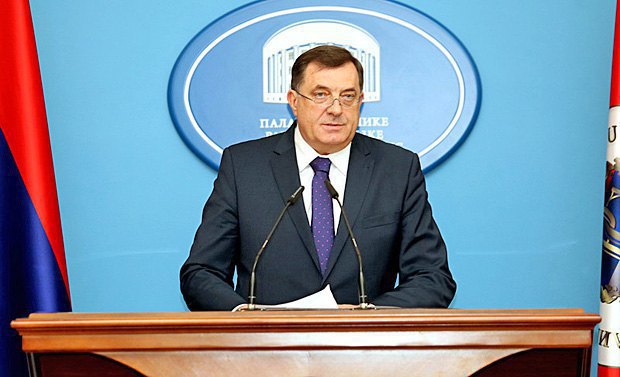On March 19-21, an international parliamentary delegation that included members of the Serbian Radical Party of Vojislav Seselj, illegally visited the occupied Crimea. This is not the first time that Serbian radicals showed their special devotion to the Kremlin. In particular, at the end of 2015, during his visit to Belgrade, Russia’s Deputy Prime Minister Dmitry Rogozin met with Seselj, and even presented him with a few jewelry boxes with pictures of the annexed Crimea, expressing his wish to receive in a short time an object from the leader of the Serbian radicals that would symbolize Kosovo’s return to Serbia.
Nevertheless, in the very beginning of the occupation of Crimea and its subsequent annexation, as well as during the following years, Seselj and other Serbian parliamentarians had refrained from visiting the Crimea. Serbian political scientist Ventsislav Buyich noted on the occasion that the visit did not attempt to achieve far-reaching foreign policy objectives, and was aimed primarily at the Serbian audience in connection with the upcoming elections.
However, even if the visit to the annexed peninsula was just a pre-election move, it nevertheless sends a very alarming signal that the political trend among Serbian politicians is to move closer to Moscow. This is confirmed by Ventsislav Bujich himself.
“After the election results in the US and the Trump administration’s first steps, all the pro-Russian forces in Serbia are now openly claiming that the whole of Eastern Europe, including the Western Balkans, will now enter the zone of Putin’s influence, and the EU and NATO will simply cease to exist or at least cease to exist as a meaningful force. Against this background, most politicians are beginning to adhere to an openly pro-Russian course,” he said.
Suffice it to recall the recent failed coup in Montenegro, when Montenegrin authorities openly stated that it was Russia that was preparing the terrorist attacks and the overthrow of the government in their country by the hands of the Serbian militants under their control. Not so long ago, British Foreign Secretary Boris Johnson also said that there was “very little doubt” that it was the Russians who were behind the coup attempt in Montenegro and even the attempted assassination of the leader of that country, as well as other “dirty tricks.”
Read also: Plans for a “Great Serbia” and the Kremlin’s hybrid war in the Balkans
By the way, the militants themselves were not too eager to hide their ties with Moscow. Thus, the head of the alleged sabotage group, Aleksandr Sindjelic, more than once admitted to his special relationship with the Russian Ministry of Defense, on the instructions of which he, in particular, personally selected the “Chetniks” to participate in the operation of annexation of the Crimea and subsequent hostilities in the Donbas. Another suspect sought by the Interpol in connection with the attempted coup, Serb Nemanja Ristic, was not reluctant to be photographed with the attaché in charge of the defense of the Russian embassy in Belgrade, Colonel Andrei Kindyakov and participates in meetings with Russian Foreign Minister Sergei Lavrov.
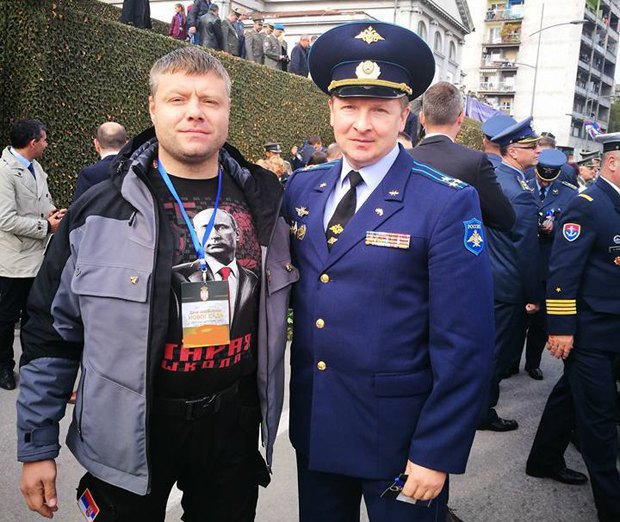
Meanwhile, some Ukrainian media sources have already suggested that an unsuccessful attempt to overthrow the pro-Western government of Montenegro will not be the last operation of its kind.
In this case, the role of stealthy occupiers can be performed by both Russian “tourists” and mercenaries from different EU countries, including Serbs from the Republika Srpska – an integral part of Bosnia and Herzegovina.
Read also: ‘Some damn thing in the Balkans’ again – Putin seeks to exacerbate conflicts there
This assumption is not without foundation, since at the beginning of this year the head of the Republika Srpska Milorad Dodik, known for his relations with the Kremlin and Russian intelligence, said that it is better for the Bosnian Serbs to create a single state with Serbia and the Serbian territories in Kosovo.
Earlier, Dodik already noted that Bosnia as a state has no future and that it would be better if the constituent entities – Republika Srpska and the Muslim-Croat Federation – were able to separate on friendly terms. The Bosnian Serbs, in his opinion, should create a single state with Serbia and Serb municipalities in the north of Kosovo, with which Montenegro would later join. In this regard, he announced a referendum for the first half of 2017 on the secession of the Republika Srpska.
Apparently, such a threat is felt in Europe. Thus, British Prime Minister Theresa May, speaking at a meeting in Brussels, called on the European Union to cooperate more closely with Western Balkan countries to effectively oppose Russian intervention.
“In light of the alleged Montenegro coup plot, I will call for us to do more to counter destabilizing Russian disinformation campaigns and raise the visibility of the western commitment to this region,” the British Prime Minister said.
Shortly after Theresa May’s speech, former Prime Minister of Montenegro Milo Djukanovic also called on the European Union to take action against the destructive influence of Russia in the Balkans. In particular, he noted that Moscow poses a threat to the very existence of the European Union, supports the extreme right forces opposing the unity of the EU, and against this background, Montenegro is not the main goal of the Kremlin. At the same time, the current government of Montenegro has already turned to the UK with a request to provide technical assistance in protecting against cyber attacks.
Read also: Serbian nationalists on Moscow’s service
As noted in the British press, Montenegro claims that “it was subjected to continuous cyber attacks on state websites on the day when the averted state coup was to take place, and then in February when it faced another wave of attacks.”
“British and American intelligence services are already helping this country with the investigation of a conspiracy aimed at overthrowing and killing the then Prime Minister Milo Djukanovic on October 16, 2016… Both Montenegro and British officials claim that Russia was behind the plot to commit a coup since it wanted to keep Montenegro from joining NATO,” says the author of the publication Ben Farmer.
At the same time, the Montenegrin authorities themselves and the Western press agree that the best defense of the country from all forms of Russian aggression would be its acceptance into NATO. At the moment, debates on this issue are raging in the US Senate. At the same time, there is a rather high probability that Montenegro can become a member of the alliance at the end of May.
Read also: Is Russia planning “a new Donbas” in the Balkans?




